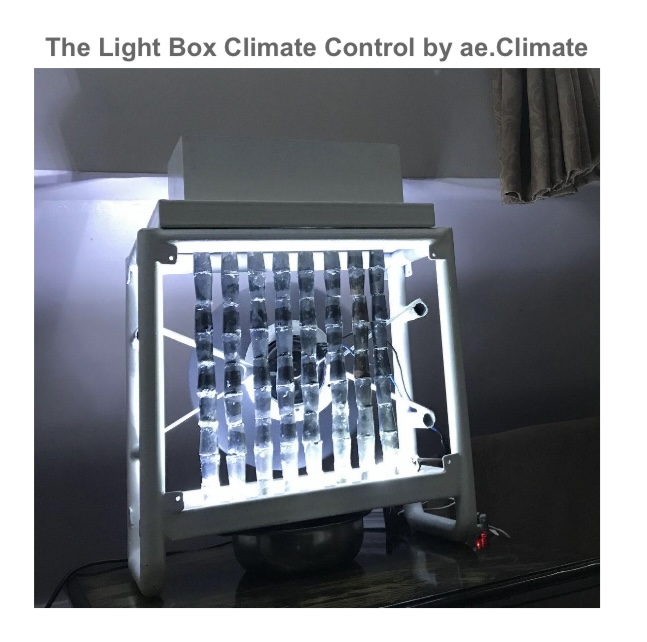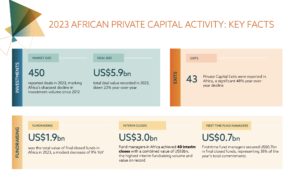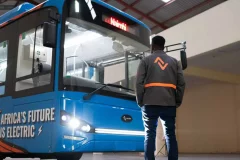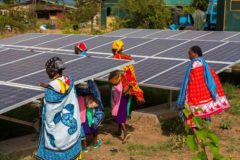In 2019, the BBC team sent a crew to test a climate control device called The Lightbox. The device, which reportedly can utilize water and light to mimic photosynthesis and cool the environment, was met with a lot of speculation at first. After a two-hour test, they reached a verdict: the device successfully replaced two air conditioners in a server room that previously required three to run.
The Lightbox, created by Anaele Iroh, a doctoral alumnus of the Dublin Institute of Technology and the founder of Adis-energy, is a device engineered to absorb heat from the environment with little or no electricity.
“For a room that requires five kilowatts of power for an AC, a control system like mine can utilize one kilowatt of power to maintain the same temperature as with the air conditioning system,” Iroh shared. Iroh’s Lightbox device uses heat and water to dehumidify and cool spaces, utilizing less energy than required with regular ACs.

Nigeria has been feeling the heat of climate change intensely in the past year; hotter than anything the country has ever experienced. In states like Sokoto, the temperature went as high as 40.8C, and in Yola, Adamawa State, the death toll as a result of the extreme temperature reached 400 between May 1 to May 13. To cope with the scorching heat, there has been increased usage of energy-guzzling fans and air conditioning units which generate severe heat and greenhouse gasses, creating further complications for the environment.
According to this report, the air conditioner market in the past year is experiencing a surge in demand due to the rising temperature and these cooling devices are some of the biggest energy consumers around. A standard banking hall in Nigeria uses a minimum of two portable air conditioners, which consume between 3,000 to 5,000 watts of energy per hour, depending on size. Iroh believes that he can solve this problem, and in April 2024, he presented the Union Bank branch in his hometown, Mbaise, with the Lightbox, which could keep their banking halls and offices cool with 75% less energy.
While his solution was met with a lot of skepticism earlier, scientists at the Massachusetts Institute of Technology published a paper a couple of years later on the same discovery that light, instead of heat, could be used for desalination.
According to Gang Chen, a power engineering professor at the institution, the discovery of desalination is especially crucial for the development of clean energy which would impact the climate-tech space.
“This discovery may increase the precision of climate modelling while aiding industrial applications,” he wrote. “We’re exploring all the different directions, especially how it affects the climate.”
Iroh who has a Ph.D from the Dublin Institute of Technology believes that the problem of Nigeria’s climate problem must be approached from a Nigerian perspective rather than a Western one.
“I’ve been trying to influence the global debate on climate change, because if these countries get it wrong, then every other country —like Nigeria— gets it wrong.”
According to the World Economic Forum, heat from machines like heating and cooling devices, industrial machines, etc is one of the biggest challenges in tackling climate change, yet the bulk of the focus of climate solutions is only focused on decarbonizing cars and electricity.
“For people in a country like Nigeria, the solution to climate change isn’t things like not flying airplanes or electric cars. Elon Musk could sell one million Teslas and it won’t affect the person living in Sokoto state, because fossil fuel is not their problem,” Iroh said.
Oghosa Erhahon, an energy and sustainability specialist, also believes in a specialized approach to climate change. According to her, the climate crisis is peculiar to different regions and the solutions must mirror those peculiarities.
“There isn’t one blanket solution to the climate crisis,” she shared. “People from different regions have to find their solutions and voices in responding to the climate crisis, which is a shame because that’s not what’s happening in Nigeria right now.”
For the past year, Iroh has struggled to convince investors to invest in his device due to the novelty of the idea. In 2019, he almost secured $2 million in funding from PFan, until his financial advisors disrupted the deal as they still weren’t convinced it would work.
“If we were doing something predictable or known, then I think we’d have had more success with funding,” he said.
“I’ve had to build everything by myself from scratch, including selling everything I own to keep working. It’s only now that we have demonstration units we can give to people to try out that we’re getting some requests for funding.”
In 2023, climate tech became a big deal. Investors, who previously didn’t pay much regard to the sector, signed off $1 billion of the entire funding on the continent ($3.5 billion) to that area. Despite this rush, the funding is concentrated in areas of climate change like electric vehicles that have become popular in the last few years.
According to Erhahon, one of the reasons for this is simply the high risk attached to funding climate tech, especially one that requires hardware.
“Most climate tech requires devices that have to be built from scratch, and most likely with parts imported from other parts of the world. It’s complicated, and that can turn investors off.”
Joash Lee, an angel investor, shares that another reason why it’s tough to fund climate tech is due to the large amount of money that it typically requires to make a difference.
“Climate tech startups need more capital —about four to five times more than fintechs, for example—which is more than most early-stage VCs provide,” he wrote. “Private equity firms also tend to stay away, as they generally prefer to invest in cash flow-positive businesses.”
“Also, these solutions require deep technical knowledge to evaluate, and investors who lack the expertise typically steer clear of these deals, until the knowledge becomes more mainstream like EVs, for instance,”
In the meantime, Iroh is focused on finetuning his device to more aesthetically appealing models and pitching them to banks and other large energy-consuming spaces like airports, hotels and churches.





















